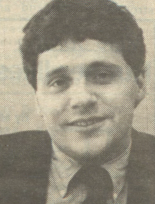OU associate professor Jan Graetz travels to India for autism research
Many Americans went on a shopping spree the day after Thanksgiving for the Black Friday sales.
Oakland University special education professor Jan Graetz was one of them. She bought 15 small digital cameras.
But the cameras weren’t for her. She is planning to give those cameras to families of people with autism when she travels to India this January, as part of a research project during her semester-long sabbatical.
The study will examine how people with autism are treated in the Indian culture and the daily lives of the families of these individuals.
“In the United States, many people with disabilities don’t have equality. They are often looked down upon, or not treated as equal partners,” Graetz said. “If we don’t have it in the United States, you can imagine they don’t have it over there.”
Sabbaticals
Once every six years or so, faculty members with tenure get to take paid sabbaticals — usually a semester where they don’t have to teach classes —to pursue other interests.
But the sabbaticals aren’t just paid vacation time.
Professors have to do certain things that pertain to their field, like concentrate on research, write books or take classes to get a degree. Some stay local, some go across states and some travel to other countries.
Professors typically use what they work on during their sabbaticals as part of their job as a teacher and bring back the knowledge to their students.
According to a faculty personnel report approved by Oakland University’s board of trustees on Nov. 9, 18 OU professors are taking sabbaticals this semester, and 21 professors will be taking sabbaticals in the winter 2010 semester.
Sabbaticals have to be approved by the department chair, dean of the school, provost and OU’s Institutional Review Board. Eligible faculty members have to relay to the board the goal of the their work, whom it would benefit and what methods of research or data analysis they will use during their studies.
“This was the first year I was eligible for a sabbatical,” Graetz said.
She recently got promoted from assistant professor to associate professor. She applied for the sabbatical this spring.
Graetz said she is still awaiting the final approval from the review board, but has already made preparations to go.
Graetz’s autism study
Graetz decided to travel to India out of a curiosity toward the quality of life for people affected by autism in other cultures.
“I wanted to see how other countries deal with autism,” said Graetz.
She contacted an organization in New Delhi called Action For Autism, and asked if she could talk to people with autism. The organization is helping her find interested families.
Graetz said she is going to India on Jan. 6, and will be back mid-February.
She will talk to about 14 families, who would be divided into two focus groups.
Each family will get one of the digital cameras in order to document their lives with regards to how the autistic member of their family is treated.
Graetz said she will share the results of her research with other organizations in India so agencies dealing with disability or autism can use them to help improve the quality of life for individuals with autism.
“I want to see the gap, see where the quality of life is lacking,” she said.
A life-long interest
Graetz said she grew up around people with disabilities, as there was a state mental institution on the outskirts of the town where she spent her childhood.
She said her summer jobs, 4-H events and church projects all revolved around people with disabilities, and that she worked in the state institution when she was in college.
“Ever since I was born, I knew someone with a disability,” she said, adding that no one in her family had one.
She said there wasn’t a specific point in her life when she decided to work with people with disabilities.
“I taught a year of English in high school, but I knew it wasn’t where I wanted to be,” she said.
A few years later, in the mid 1970s, she was the principal of a new Detroit school with 70 students with autism and other disabilities.
The sabbatical next month won’t be her first trip out of the country to work with people with disabilities.
She lived in Brazil for four years, volunteering with people with severe disabilities, and went with her husband and children to different countries in South America. Graetz said she also lived in Hawaii for five years.
Through these experiences, she got to see how people in different cultures treat people with disabilities.
She said there is sometimes a stigma attached to people with disabilities, and they often aren’t treated equally.
“But the parents all want what’s best for their child,” she said.











